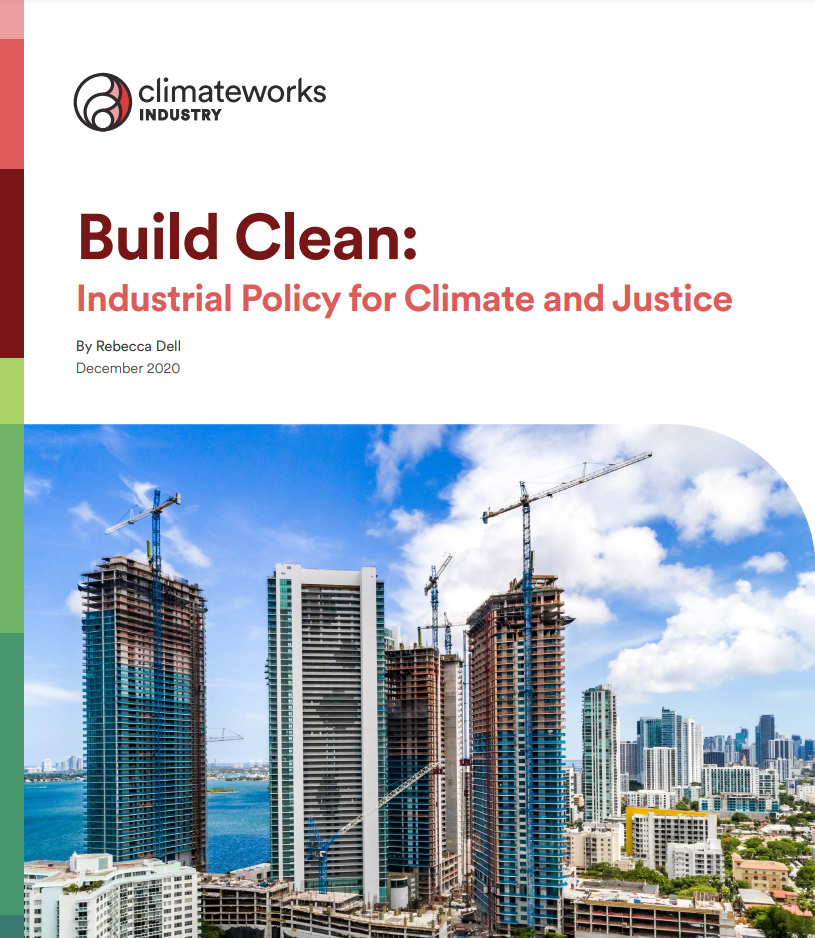Climate Works Foundation Report (December 2020)
The material economy is how we provide all the physical stuff we need and want—houses, utility lines, roads and railroads, cars and trucks, consumer products—through manufacturing, construction, mining, and waste processing. Its products provide comfort, convenience, and safety, and making them gives meaningful jobs to more than 20 million Americans. However, the material economy is also the source of an enormous portion of greenhouse gas (GHG) emissions and local pollution.
We cannot reach our climate goal of net-zero GHG emissions by 2050 without getting on a path to net-zero GHG emissions within the industrial sector. We cannot ensure everyone gets the safe, healthy life they deserve without addressing legacy and ongoing pollution from industrial activities.
These goals are achievable. Moreover, meeting them creates enormous opportunities for just and equitable economic development. We can improve health, safeguard the climate, create jobs that are ladders to the middle class, and make U.S. manufacturing stronger and more competitive.
To do all of this, we should pursue the four pillars of the Build Clean agenda:
- Create markets and demand for products that are made in a clean way. Using market demand, we can achieve dramatic reductions in GHG emissions and local pollution without significantly raising the cost of finished goods and without offshoring.
- Support innovation and deployment by investing in technological progress at every stage – from research and development to commercial viability – and supporting widespread deployment. Without smart policies and substantial investments, the United States will fall further behind other countries in clean manufacturing leadership.
- Invest in and protect people by making sure that everyone—urban or rural, Black or white, old or young, man or woman, factory worker or engineer— has an opportunity to participate in and benefit from our new industrial policy.
- Strengthen governance and coordination of action. Transformative change requires high-level leadership.
